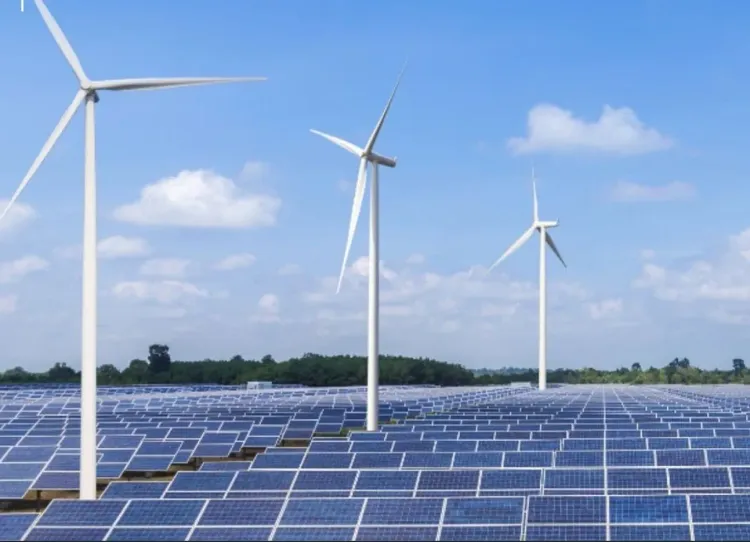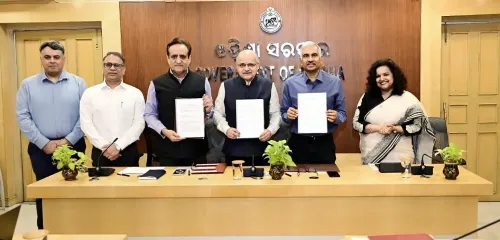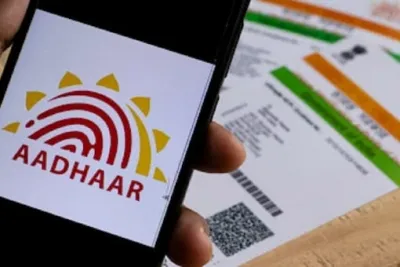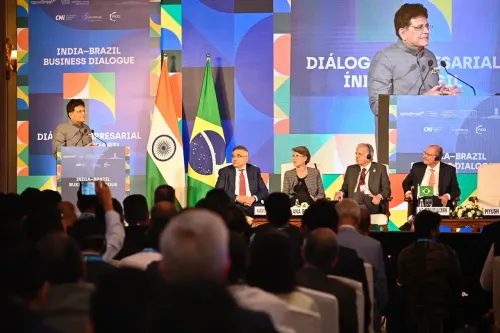How Did Maharashtra Achieve the Top Spot in the State Energy Efficiency Index 2024?

Synopsis
Key Takeaways
- Maharashtra ranks first in SEEI 2024.
- 36 states and UTs were assessed for energy efficiency.
- 66 indicators were used in the evaluation.
- 5 states are classified as front runners.
- Energy efficiency is key for achieving net-zero emissions.
New Delhi, Aug 29 (IANS) Maharashtra has secured the top position in the State Energy Efficiency Index (SEEI) 2024, which was unveiled on Friday by the Union Ministry of Power.
Andhra Pradesh, Assam, and Tripura followed closely in the SEEI 2024 rankings, which assessed energy efficiency across 36 states and Union Territories for the fiscal year 2023-24.
The index was launched by Akash Tripathi, Additional Secretary at the Ministry of Power, and was crafted by the Bureau of Energy Efficiency (BEE) in partnership with the Alliance for an Energy Efficient Economy (AEEE).
It encompassed various sectors such as buildings, industry, transport, DISCOMs, agriculture, municipal services, and cross-sector initiatives using a set of 66 indicators. The updated framework reflects shifting national priorities including the Energy Service Companies (ESCO) model, star ratings for buildings, profiling of MSME clusters, expansion of the PAT scheme, incentives for EV demand, and demand-side management efforts by DISCOMs.
In comparison to SEEI 2023, the count of front-running states has decreased from seven to five, with Andhra Pradesh, Karnataka, Maharashtra, Telangana, and Tamil Nadu holding this status. Meanwhile, Assam and Kerala have been recognized in the 'achiever' category, having scored between 50% and 60% of the total evaluation points.
Haryana, Punjab, Rajasthan, Odisha, and Uttar Pradesh were designated as 'Contenders' meeting 30% to 50% of the total score.
"As we navigate our journey towards achieving net-zero emissions by 2070 and a 45% reduction in emissions intensity by 2030, energy efficiency stands out as a fundamental pillar, providing effective, low-cost solutions that span all sectors," remarked Tripathi.
He emphasized that energy efficiency is a financially advantageous strategy for India to meet its net-zero emissions target by 2070 and to achieve a 45% reduction in emissions intensity by 2030.
The SEEI underscores advancements made in energy management, including the adoption of the Energy Conservation Building Code (ECBC) by 24 states, implementation of electric mobility policies by 31 states, and the requirement for EV charging infrastructure in buildings across 14 states.
SEEI 2024 continues to act as a vital policy instrument, directing sub-national energy efficiency initiatives while aiding India's energy transition. The Index offers actionable insights to assist states in enhancing their energy efficiency performance, thereby supporting India's broader climate and energy security objectives.









